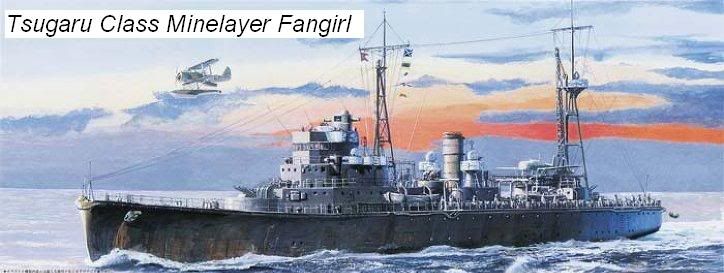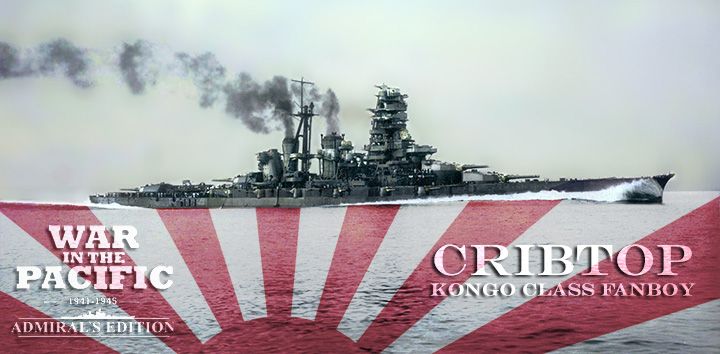JWE
Posts: 6580
Joined: 7/19/2005
Status: offline

|
quote:
ORIGINAL: Alfred
You won't get too many southerners admitting this but the simple fact is that no Confederate general, and this most definitely includes Lee, had any idea how to win the war for the south.
I do agree with ilovestrategy. I think almost all Southrons would admit that, pal (except the Texicans, of course  ). The parallels between the War of Northern Aggression and the Pacific War are many and varied, and the US Civil War often comes up in the context of strategic analysis of the Pacific conflict. Because ilovestrategy is a righteous dude and seems to love strategy, this is dedicated to him. ). The parallels between the War of Northern Aggression and the Pacific War are many and varied, and the US Civil War often comes up in the context of strategic analysis of the Pacific conflict. Because ilovestrategy is a righteous dude and seems to love strategy, this is dedicated to him.
Generals, as a rule, don’t have the responsibility of defining a war winning strategy. That’s at the political/policy board level, at which generals have input but don’t control (unless they also run the govt like Fredrick or Nappo). It’s quite illuminating to consider that both Japan and the CSA were run by soldiers, or ex-soldiers, who thought of themselves as generals. Note; I am NOT equating Davis to Tojo, just remarking on the similar philosophical composition of each nation’s policy board level.
In the CSA, every general had to obtain approval of their campaign plans from the President, which were invariably altered by Davis.
In Japan, every IJN plan had to get approval from IJGHQ (effectively the govt, under Tojo), and which were invariably altered by the IJA: and vice versa.
Neither the CSA, nor Japan had any hope (or even contemplation) of winning the war by a resounding strategic victory over opposing forces. Their only hope was to achieve significant defensive victories that would sap the morale and will-to-continue of the opponent. They were both classical attritional situations (strategically, not necessarily tactically).
Both the CSA and Japan depended on foreign intervention. Japan depended on Germany beating Russia, or at least keeping her occupied and keeping the Westerns busy, thereby supporting the ‘weariness’ strategy. What they missed was the ‘outrage effect’ that just put the economic powerhouse in a higher gear, so it really didn’t matter squat what happened in Russia, Japan was toast sooner or later.
The CSA’s dependence was a bit more prosaic. They wanted (nay, required) active intervention. They first tried ‘cotton is king’, but all that did was push development of long staple Egyptian. Then they tried ‘we are your historical brothers, and here’s your chance to humiliate the hated Yankee and gain an economic foothold’. This was getting some traction so long as Southern arms demonstrated an ability to maintain the integrity of the State, but then along came the Emancipation Proclamation.
Once the conflict was cast in those terms, there was no way that GB would ever come in. Even a 10-year-old, remembering her actions in the 1812 conflict, would realize that GB would never, ever, allow herself to be tarnished with any association with slavery, whatsoever. A not sufficiently realized practical and political effect that Lincoln understood ohh, so well.
Ok. That’s an extremely brief background of the context within which a General must operate. Anybody out there have any suggestions about how any General, on either side, could have figure it out and done it different.
Btw, Scott’s Anaconda plan, which was what got eventuated, bears a remarkable similarity to Nimitz’ operational concepts in the Central Pacific (ok, and MacArthur’s in SWPac). Just conceptually internalize Guadalcanal as Donelson; then Shiloh and Vicksburg as the Gilberts and Marshalls. Sherman’s strike through the heartland might, perhaps, evoke New Guinea/Philippines, while the Marianas/Okinawa suggest the final campaign to the Petersburg line and ‘the end’.
[ed] ok, so that's an over gloss of my professional opinion. On a personal level, I believe the parallels can be extended further. Both the Southern States and Imperial Japan, were sucked into precipitous and premature conflicts by the actions of a pack of sabre-rattling, self-absorbed, self-centered, utterly brainless "politicians".
Time, and attention to the economics of things, and attention as to how to make those things work for ya, rather than being a millstone, would have had some significantly different consequences. The Southern States shoulda, coulda, and our national landscape might have been very different. Japan shoulda, coulda, and the post war landscape would have been very different indeed.
< Message edited by JWE -- 3/23/2012 7:19:24 PM >
_____________________________
|
 Printable Version
Printable Version









 ). The parallels between the War of Northern Aggression and the Pacific War are many and varied, and the US Civil War often comes up in the context of strategic analysis of the Pacific conflict. Because ilovestrategy is a righteous dude and seems to love strategy, this is dedicated to him.
). The parallels between the War of Northern Aggression and the Pacific War are many and varied, and the US Civil War often comes up in the context of strategic analysis of the Pacific conflict. Because ilovestrategy is a righteous dude and seems to love strategy, this is dedicated to him. 




 ) I highly apprechiate your analysis of Gettysburg.
) I highly apprechiate your analysis of Gettysburg. 














 New Messages
New Messages No New Messages
No New Messages Hot Topic w/ New Messages
Hot Topic w/ New Messages Hot Topic w/o New Messages
Hot Topic w/o New Messages Locked w/ New Messages
Locked w/ New Messages Locked w/o New Messages
Locked w/o New Messages Post New Thread
Post New Thread